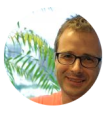The page you requested does not exist. For your convenience, a search was performed below using the query whats on q2xafs 2023 international workshop on improving data quality quantity xafs.

Group Manager - Spectroscopy
Dr Peter Kappen manages the Spectroscopy Group at the Australian Synchrotron.

Senior Scientist - XAS
Career Statement and Role at ANSTO
Pagination
